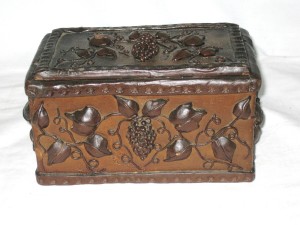 Who wants to drive cross country with an elderly mother? It wasn’t me.
Who wants to drive cross country with an elderly mother? It wasn’t me.
The trip odometer rolled over to three thousand miles just as I pulled into my mother’s driveway in Edmonton, Alberta. I’d turned it on when I left my home in Schenectady. I’d just completed five days of hard but glorious driving.
It was two in the morning. I was weary and my left forearm was badly sunburned on one side. All day long, with the sun beating down, I’d rested my arm on the open window of my little red hatchback. Nobody does that anymore unless their car, like mine, lacks air conditioning.
It was two in the morning, but all the lights were on. When I rang the doorbell, my mother flung the door open wide.
“Guess what!” She beamed and hugged me. “I’m driving back with you!”
“No!” I blurted. And I meant it.
The drive was my big adventure. Mine. Driving across the continent. Alone. This trip was about my solitude and my healing after a painful divorce. It was about the forests and rocks and lakes and prairies of Canada, my native land. I’d already stored away a thousand memories and needed about a thousand more.
My mother coming would ruin everything. She wouldn’t understand my trip. She would talk too much and repeat her same old stories. She’d gossip and fret about all the people in Alberta and never inquire about my life in NY State.
Even as I was bringing my luggage inside, I was frantically trying to think of excuses to make her change her mind. For the next several days, I would try to soften the harshness of that too shrill “no,” while still presenting logical and caring arguments to persuade her to stay home.
She had arthritis. She wouldn’t be comfortable in my tiny car. I didn’t even have a radio for heaven’s sake.
She was old and frail. Her heart was bad: she’d had heart attacks and open heart surgery, and congestive heart failure and angina. She could die on the road in some remote place far from medical care.
But a tide of opinions slowly rose against me, mostly from my mother.
“Margaret, you must have been terribly bored all alone all day, not even the radio to listen to. I could keep you company.”
“Margaret, dear, you looked awfully tired when you got home. We could share the driving.”
No way! My mother was the worst driver in the world. I remembered the time she backed out of the garage with the door still down. I remembered her hurtling down the Rocky Mountains on our way to Vancouver. “Mom, Mom, slow down! You’re going 125 km/hour on a twisting mountain road.”
In the coming days, Mom continued.
”My health? Why, I’m feeling perfectly fine. For heaven’s sake, we’ll be on the Trans-Canada Highway! Don’t you think there are doctors between here and Schenectady? And just in case I need to see a doctor in the States, I’ve bought supplemental insurance!”
“I heard my brother Russell isn’t doing so well these days. He’s blind now, did I tell you? Same thing I’ve got, macular degeneration. I suppose I’ll be blind one day soon, too. I won’t be able to travel at all then. I sure would like to see my relatives and old friends one more time. Your brother Vance, of course, in Ottawa. And Geneva in Kingston, Ontario. Did I ever tell you that I went to school with Geneva? And Russell and Margaret and Jeanne and Hilton and the others in New Brunswick…those that aren’t already dead….
Family and friends began to come around to her way of thinking, rather than mine.
Her best friend Jerry took me aside, “Margaret, dear, this trip is so very, very, very important to your mother. Faye knows the risks, but she wants to go anyway. She worries that this will be her last chance to visit your brother Vance and all her relatives in the Maritimes. And you know what a good traveler she is.”
Doug and Patti, my younger brother and sister-in-law, understood perfectly well why I resisted. They were the ones who were always there for my mother, taking her to doctors and shopping and helping her out. They knew all her medical problems—and they knew how she could drive a person crazy. Late into the night, after my mother went to sleep, we talked the pros and cons. Maybe my mother wore them down. Maybe they looked forward to a holiday from her. Whatever. They began to urge me to let her come.
“She could have a heart attack anywhere. She could have one here in Edmonton. If she were to die on the trip, at least she’d be doing something she really wants to do. And it has been a long time since she has gone to the Maritimes. Maybe it’s the right thing to do….
I was cornered, and I knew it. The decision was made. My mother was coming with me.
It was soon time to leave. We loaded up the car. It was a hot day, but, as always, my tiny mother wore a full slip, panty hose, nylon top, polyester skirt, and black sensible shoes with laces. She perched on the passenger side, barely tall enough to see out the front window. She cheerily waved the family good-bye, and we were off.
We talked…well mostly my mother talked.
“Margaret, did I tell you that Mr. Hill built a new planter for my patio? It’s the green one that I planted yellow nasturtiums in. He’s such a nice man.”
“Margaret, I heard from Irene. She’s doing ok, but her diabetes is worse. Still she bakes bread every day. Gives it away to the neighbors because she can’t eat it.”
“I worry about your sister. I wish she and Richard would sell the farm and move to town. And I think she’d be happier if she had a hobby—she should knit an afghan or something.”
“I don’t get to church as much as I used to. Hazel would take me; she just lives across the lane, but that’s not the problem. I said to her, ‘Hazel, those wooden pews are just too darned hard to sit on for an hour.’ ”
Mostly during the day I watch the news on CBC. In my opinion, those idiot politicians in Ottawa should all be shot dead. They’re less than worthless. Though from what I see on CNN, the ones in the States are just as bad, maybe worse.”
At no time along the way, driving a week together, did we bare our souls. I never told her much about my life in Schenectady. I was always careful to guard my secrets. She never asked much. The stories she told me, I’d heard before. We mostly stayed on the surface of things, as always.
But we began to collect our shared memories of the long trip home.
We drove a couple of hundred miles out of our way to Moosejaw, Saskatchewan to buy a tee shirt for a friend of mine. My mother didn’t mind. “Of course you should buy a tee shirt for your friend. Why not!” (Afterwards, I took her picture beside the giant statue of the moose.”)
In southern Saskatchewan, it was almost 100 degrees. I was wearing a loose tee shirt and shorts and had wrapped a wet dish towel around my neck to stay cool. My mother was wearing, of course, pantyhose, full slip, nylon top, polyester skirt, and sensible shoes. I—not she—complained about the heat. I stopped in a little town just to find shade somewhere before I died of sunstroke. I’d spotted one lonely tree near an ice-cream stand. We stood in that tiny bit of shade. “This strawberry ice-cream is delicious!” said my mother. “almost as good as the grape nuts ice-cream they make down east. Maybe I’ll have some when I get there.”
We stopped in Swift Current, Saskatchewan, a little prairie town with a lot of spanking new farm equipment for sale and not much else. As we pulled into a motel parking lot late in the afternoon, I could see that my mother was in serious pain from angina. She took her nitroglycerine, then I hurriedly checked us in. As my mother sat a little distance away, still in pain, I quietly asked the clerk “Can you give me directions to the nearest hospital?” All the scary scenarios we’d talked about came to my mind. My mother would die on the prairies while I was looking for a hospital.
“Margaret, don’t worry,” my mother insisted. “The pain has eased up. I’ll let you know if it comes back.”
I hoped she was telling the truth. We ate dinner in an improbably large Chinese restaurant near the motel. I had directions to the hospital tucked away in my purse, just in case. Only one other table was filled even though it was Saturday night. Could there possibly be enough people living near Swift Current ever to fill the restaurant? A woman with a sweet voice sang a country western song about the Pembina river in Alberta, a river that runs near my sister’s farm a hundred miles north of Edmonton. We were far from my home, far from my mother’s home, and far from the Pembina. And I didn’t want my mother to die there.
Somewhere in the mid-West, we drove into a huge thunderstorm just at sunset. Almost the entire sky, horizon to horizon, not just the sky in the West, was burnt red by the sunset, punctuated by vivid streaks of lightning. It was spectacular. I pulled the car to the side of the road. “We must remember this,” I said. “This is why we came, to see such sights.” My mother nodded yes.
East of the prairies, we drove into the spruce-dark forests north of the Great Lakes. For hours we saw few signs of civilization, so when we spotted rustic cabins, we knew we’d be spending the night. I have never seen flying insects the likes of those inside our motel room. While my mother got ready for bed, I did battle with them. I pulled out my can of hair spray and leapt from one bed to the other spraying them, gumming up their wings, and removing them from the premises.
“How clever you are to think of such a thing,” my mother said.
I thought, “other mothers might have complained about a motel room chock full of big flying bugs.”
In Ontario we went south to a ferry to Manitoulin Island. In the motel near the dock, keys to empty motel rooms hung on an outside wall. We could choose whichever room we liked, unlock it, spend the night, and pay in the morning.
“Would you believe any business could be so trusting!” said my mother.
I’d never seen such a thing, either. We liked it.
At some point, traveling down the highway, many miles of wilderness between every hamlet or gas station, with nothing to see or everything, depending on your point of view, my mother turned to me, eyes shining, hands folded on her lap, and said serenely,
“Margaret, I want you to know, I’m having a marvelous time.”
Think of it. For seven days, my mother didn’t complain about anything on the trip. On a road punctuated mostly by signs warning us of moose, in a little car without air conditioning or even a radio, she had not complained about a single thing.
Over the next few weeks, she saw her relatives and flew home to Edmonton.
When she died a few years later, her best friend Jerry took me aside again. “Margaret, Faye always talked about the time she drove east with you. It was the very last time she saw her folks Down East. And,” Jerry, said, “she always told me she’d had a wonderful time.”
Looking back, it didn’t hurt that, like a good Canadian, Mom remembered that even if life is hard, you don’t complain.
Too grudgingly I admit that it’s taken my lifetime to acknowledge my mother’s strengths: her adventurous spirit, her courage, her sense of humor, and her boundless will to persevere.
Even more grudgingly I admit that traveling home with my mother was not so bad.




![Benjamin D. Esham / Wikimedia Commons [CC-BY-SA-3.0-us (http://creativecommons.org/licenses/by-sa/3.0/us/deed.en)], via Wikimedia Commons](https://margaretfrench.files.wordpress.com/2014/04/256px-red_chrysanthemum.jpg?w=584)








